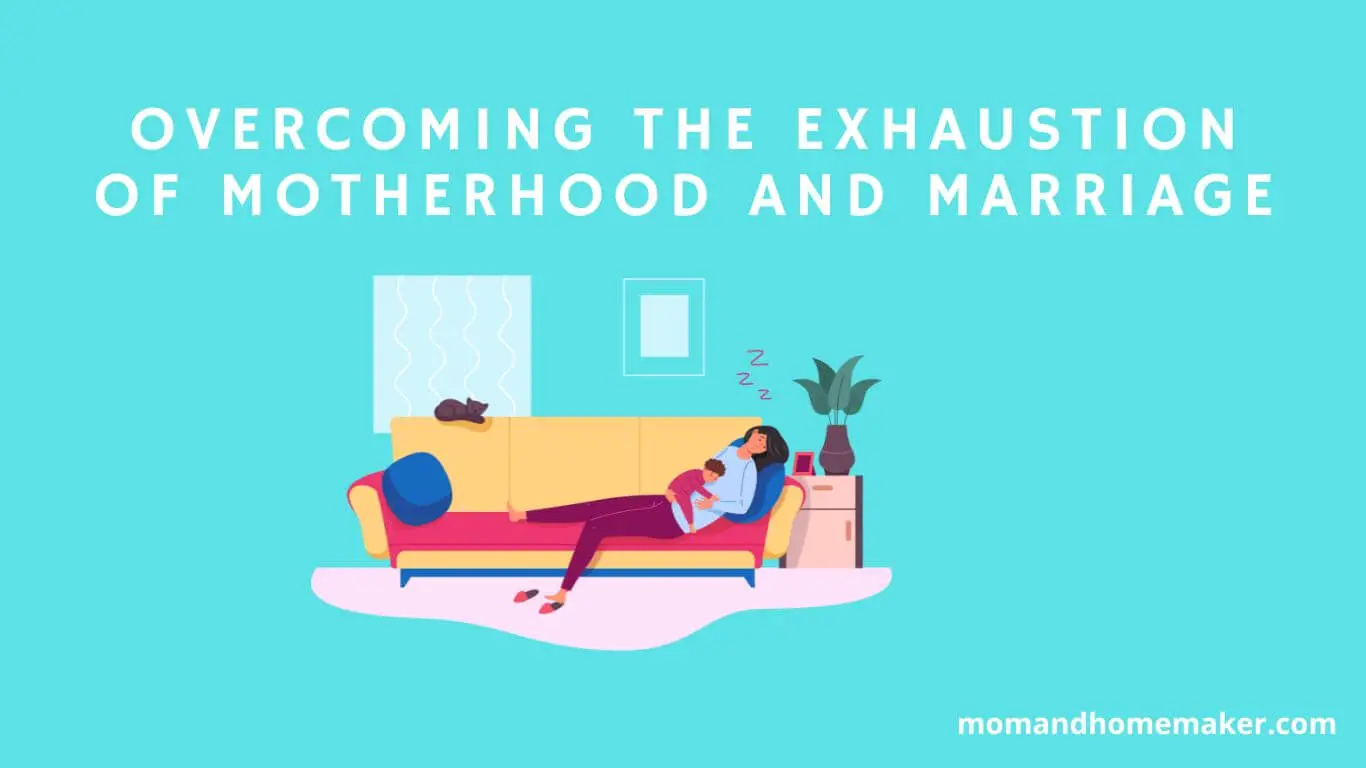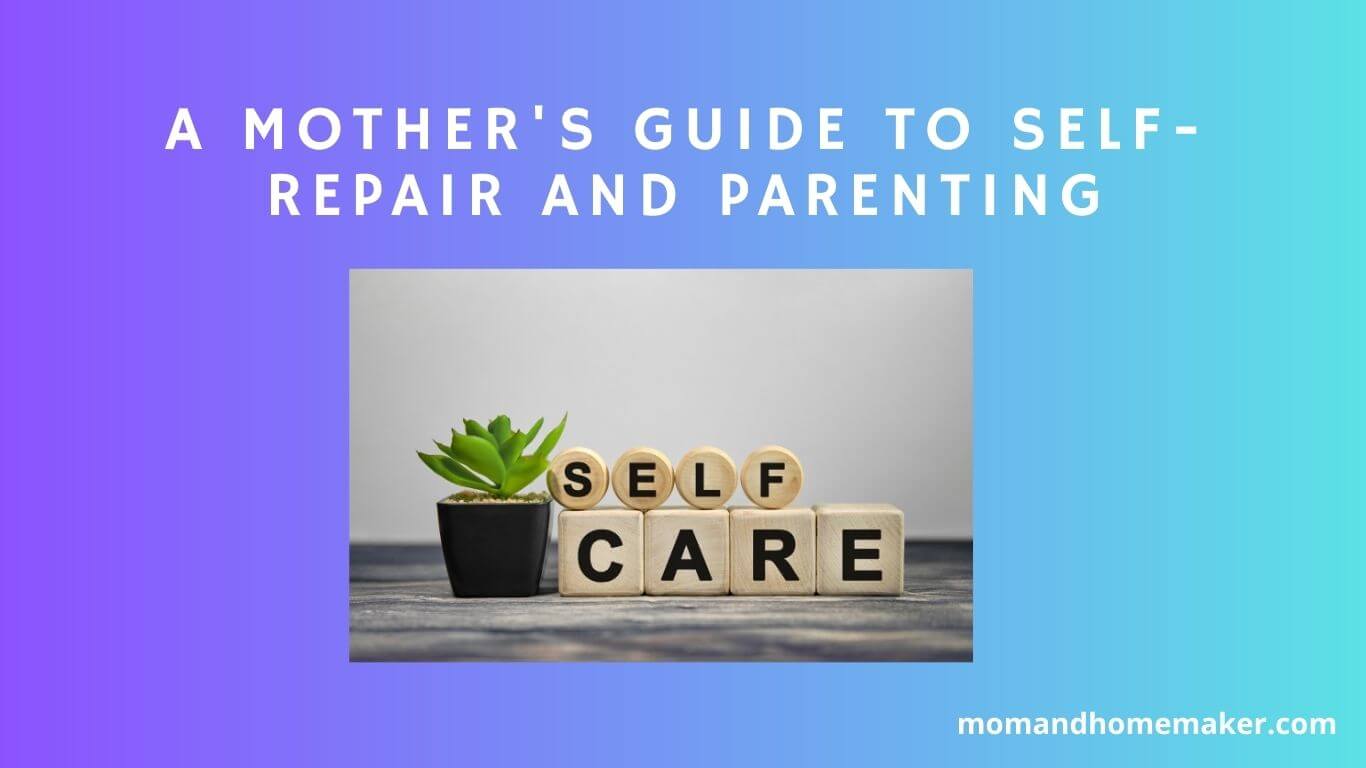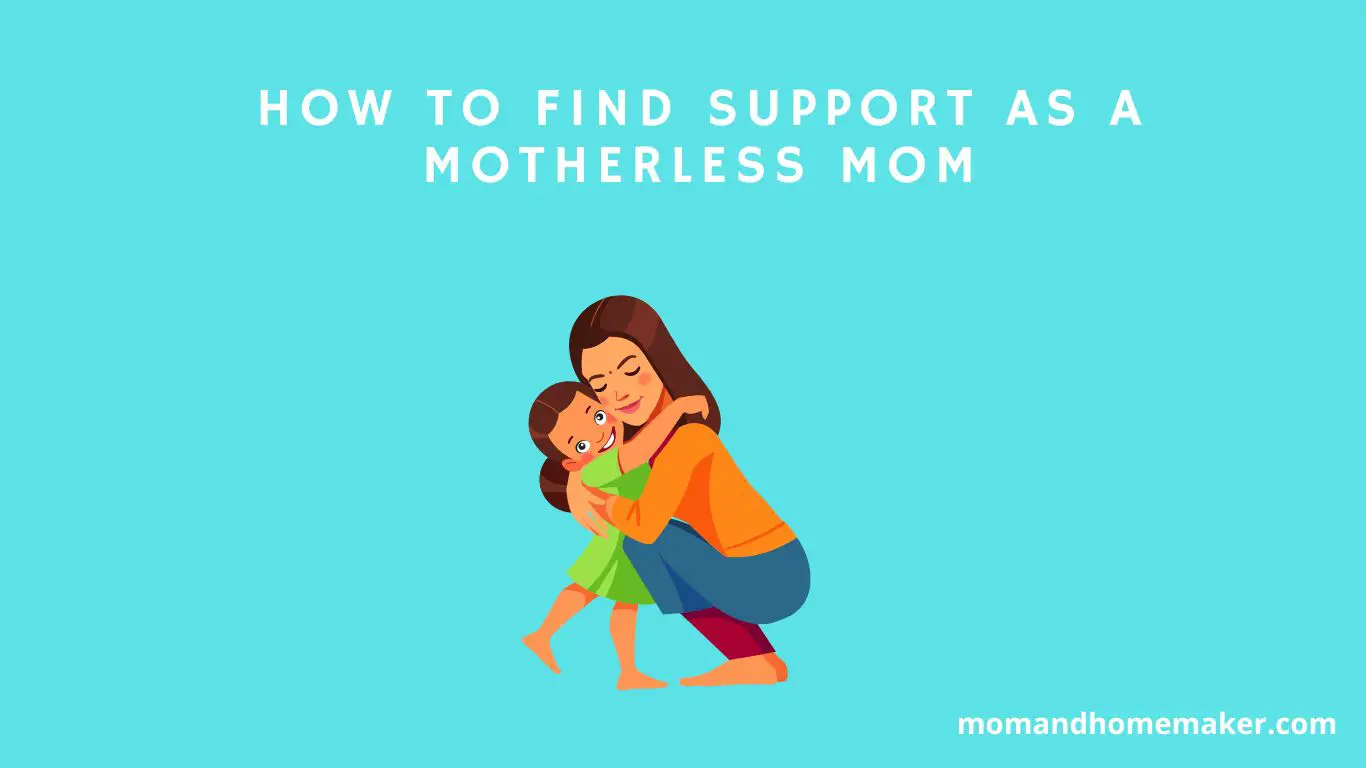Motherhood and marriage are two of life’s most rewarding experiences, but they can also be incredibly exhausting. The constant demands of caring for children and maintaining a healthy relationship with a spouse can take a toll on even the strongest of women. It’s not uncommon for mothers and wives to feel overwhelmed, stressed, and burnt out.
However, it’s important to remember that these feelings are normal and can be overcome. It’s easy to get lost in the never-ending cycle of caring for your children and home while also tending to your spouse’s needs. However, neglecting your own well-being can lead to exhaustion and burnout.
Table of Contents
The struggles of motherhood and marriage
In addition to taking care of the children, mothers often have to balance their responsibilities with their marriage. It can be challenging to maintain a strong relationship with their spouse while also being a devoted mother. The lack of time and energy can lead to a decrease in intimacy, communication, and overall connection.
Mothers may feel guilty for not being able to give their spouses the attention they deserve, and this can create tension and conflict within the marriage. Moreover, the added stress of financial issues, job demands, and societal pressures can further strain the relationship. Another issue that arises in motherhood and marriage is an unequal distribution of household responsibilities. Despite the progress made toward gender equity, women still bear the brunt of domestic duties such as cooking, cleaning, and childcare.
Therefore, it is crucial for mothers to prioritize their marriage and find ways to strengthen their bond with their spouse to overcome the struggles of motherhood and maintain a happy and healthy family.
Recognizing exhaustion:
Exhaustion is not just a physical condition but also an emotional and mental state. It often occurs when we push ourselves too hard and do not take enough rest or relaxation time. Recognizing exhaustion is crucial to avoid burnout, which can have serious consequences on our health and well-being.
Exhaustion can manifest in several ways, including physical fatigue, mental fatigue, and emotional exhaustion. Physical fatigue may include muscle weakness, soreness, and difficulty performing physical tasks.
Mental fatigue can lead to difficulty concentrating, forgetfulness, and difficulty making decisions. Emotional exhaustion can result in feelings of apathy, lack of motivation, and difficulty feeling pleasure or enjoyment in activities.
It is important to recognize these signs of exhaustion and take steps to address them, such as taking breaks, getting adequate rest and sleep, practicing stress-reducing activities, and seeking support from friends, family, or a mental health professional. Ignoring exhaustion can lead to burnout and further negative consequences for one’s physical, mental, and emotional health.
It is important to seek medical attention if any of these symptoms are present, as a concussion can have long-term effects on brain health if left untreated. If an individual experiences any loss of consciousness or seizures, emergency medical attention should be sought immediately.
8 Ways To Prevent Exhaustion As a Mother and Wife
1. Prioritize Self-Care
It’s important to prioritize self-care in order to maintain a healthy and fulfilling lifestyle, especially when it comes to the exhaustion of motherhood and marriage. As a caregiver, you tend to put the needs of others before your own, but neglecting self-care can lead to burnout and resentment.
Take some time to reflect on your own needs and desires, and find ways to incorporate them into your daily routine. Self-reflection techniques can be a great way to start prioritizing self-care. Set aside some time each day to journal, meditate, or simply sit in quiet contemplation.
Think about what brings you joy and fulfillment, and make a conscious effort to incorporate those things into your life. Maybe you’ve always wanted to take up a new hobby but never had the time. Now is the perfect opportunity to explore new interests and find something that brings you happiness. Finding hobbies is another way to prioritize self-care.
Whether it’s painting, hiking, or reading, finding an activity that you enjoy can be a great way to recharge your batteries. Make it a priority to carve out some time each week to do something just for yourself. Remember, taking care of yourself is essential to being able to take care of others.
By prioritizing self-care, you’ll be able to tackle the challenges of motherhood and marriage with renewed energy and enthusiasm.
2. Communication with Your Partner
When it comes to maintaining a healthy relationship with your partner, communication is key. You can start by sharing responsibilities and discussing concerns and needs with each other. Don’t forget to make time for intimacy to keep the spark alive.
It’s important to establish clear communication boundaries and expectations with your partner. This includes setting aside time to talk and actively listen to each other without distractions, avoiding name-calling or hurtful language, and being respectful of each other’s opinions and feelings.
It’s also important to communicate your needs and boundaries in a respectful and assertive manner and to be willing to compromise and find a middle ground when conflicts arise. By prioritizing effective communication, you can create a strong and healthy relationship with your partner.
Remember that communication is a two-way street and requires effort from both partners to be effective.
3. Sharing Responsibilities
Taking on shared responsibilities can help couples build a stronger bond and foster a sense of teamwork in their relationship. When both partners take equal responsibility for household chores, childcare, and other tasks, it can help reduce stress and exhaustion for the mother. It also shows that both partners are committed to creating an equal partnership where both their needs are met.
Here are some emotional benefits that come with sharing responsibilities:
- Feeling supported: When your partner takes on tasks without being asked, it can make you feel cared for and appreciated.
- More time for self-care: Sharing responsibilities can give you more time to take care of yourself, whether it’s going for a walk, getting a massage, or just having some alone time.
- A sense of equality: An equal partnership means that both partners are valued and respected equally. This can lead to a stronger sense of connection and trust in the relationship.
- Reduced stress: When both partners are responsible for tasks, it can take some of the pressure off the mother. This can lead to less stress and exhaustion.
- Improved communication: Sharing responsibilities requires communication and collaboration. This can lead to more open and honest communication between partners.
4. Discussing Concerns and Needs
To have a successful and fulfilling relationship, it’s important for you and your partner to openly discuss your concerns and needs. This is especially important when it comes to overcoming the exhaustion of motherhood and marriage. As a mother, it can be easy to neglect your own needs and focus solely on the needs of your children and partner. However, this can lead to feelings of burnout and resentment. By discussing your concerns and needs with your partner, you can work together to create a support system that works for both of you.
One way to create a support system is to have regular check-ins with your partner. This can be as simple as a nightly conversation about your day, or a weekly meeting to discuss any upcoming events or issues. Additionally, it’s important to validate each other’s emotions. As a mother, it can be easy to feel like your emotions are invalid or insignificant. However, by expressing your feelings to your partner and having them validate them, you can feel more supported and understood. By working together and creating a strong support system, you can overcome the exhaustion of motherhood and marriage and have a fulfilling relationship.
| Support System | Emotional Validation |
|---|---|
| Regular check-ins with your partner | Expressing your feelings to your partner |
| Creating a schedule that works for both of you | Listening to your partner’s concerns |
| Asking for help when needed | Acknowledging each other’s accomplishments |
| Prioritizing self-care | Encouraging each other’s hobbies and interests |
| Celebrating each other’s successes | Showing gratitude and appreciation |
5. Making Time for Intimacy
Making time for intimacy is essential for a fulfilling relationship, and it can be challenging to prioritize when life gets busy. Between work, kids, and household chores, it’s easy for intimacy to take a backseat. However, neglecting intimacy can lead to a lack of connection and emotional distance between partners. Rekindling passion requires effort and communication.
It’s important to identify intimacy barriers, whether they be physical, emotional, or situational. Once identified, partners can work together to overcome these barriers and make intimacy a priority. This could mean scheduling alone time or date nights, expressing affection through small gestures, or exploring new ways to connect physically and emotionally.
Remember, intimacy is a vital component of a healthy relationship, and taking the time to prioritize it can bring joy and fulfillment to both partners.
6. Time Management
You gotta manage your time wisely if you wanna stay on top of things and feel a sense of control in your daily life. As a mother and a wife, it’s easy to get lost in the never-ending cycle of responsibilities. But, with a little bit of planning, you can create boundaries and delegate tasks to make the most of your time.
Setting aside a few minutes in the morning to plan out your day can be incredibly helpful. Make a list of the most important things you need to accomplish, and prioritize them based on urgency.
Creating boundaries is essential. You can’t be everything to everyone all the time. Set aside time for yourself and your partner, and stick to it. It’s easy to get sidetracked by household chores and other responsibilities, but remember that your relationship with your partner is just as important.
You can also delegate tasks to your children or partner. Giving them specific responsibilities can help take some of the load off of you and allow you to focus on other things.
Remember, time management isn’t about being perfect or getting everything done. It’s about creating a sense of balance in your life and making time for the things that matter most. You don’t have to do it alone, either. Enlist the help of your partner, friends, or family members to help you manage your time and responsibilities.
7. Mindfulness and Relaxation
Take a moment to breathe and unwind with mindfulness and relaxation techniques, letting go of the stress and tension in your body and mind like a bird soaring freely in the sky.
Breathing techniques and meditation are powerful tools to help you relax and reduce feelings of anxiety. Find a quiet place to sit or lie down, close your eyes, and focus on your breath. Breathe in deeply through your nose, hold it for a few seconds, and then exhale slowly through your mouth. Repeat this process for a few minutes until you feel calm and centered.
Incorporating yoga and massage therapy into your routine can also help you relax and rejuvenate. Yoga is an excellent way to stretch your muscles and increase flexibility, while also calming your mind and reducing stress.
Massage therapy can help release tension in your body, while also promoting relaxation and a sense of well-being. Whether you do it at home or seek out a professional, incorporating these practices into your routine can help you feel more energized and refreshed.
Remember that taking care of yourself is just as important as taking care of others. By incorporating mindfulness and relaxation techniques into your routine, you can reduce stress and increase your overall sense of well-being.
So take a moment to breathe, stretch, and relax, knowing that you’re doing something good for yourself and those around you.
8. Seeking Professional Help
If you’re struggling with your mental health, don’t hesitate to seek professional help – it’s okay to ask for support. As a mother and wife, you may feel like you have to handle everything on your own, but it’s important to remember that you don’t have to.
Counseling can provide numerous benefits, including a safe space to talk about your struggles, coping skills for managing stress and anxiety, and identifying any underlying issues that may be impacting your mental health.
When seeking professional help, it’s important to find the right therapist for you. This may take some time and effort, but it’s worth it to have a therapist who understands your specific needs and concerns. Consider factors such as their experience, approach to therapy, and personality. Don’t be afraid to ask questions and be honest about what you’re looking for in a therapist.
Remember, seeking professional help is not a sign of weakness – it’s a sign of strength and self-care. By taking care of your mental health, you are better able to serve and care for those around you.
Conclusion
In conclusion, motherhood and marriage are two of the most rewarding experiences in a woman’s life, but they can also be incredibly exhausting. However, with the right mindset, support, and self-care, it is possible to overcome this exhaustion and find joy in these roles.
It is important for mothers and wives to prioritize their mental and physical health, communicate effectively with their partners, and seek help when needed. By doing so, they can create a happy and fulfilling life for themselves and their families.
It is never too late to start taking care of oneself, and with a little effort and determination, mothers and wives can conquer the exhaustion of motherhood and marriage and thrive in these roles.











